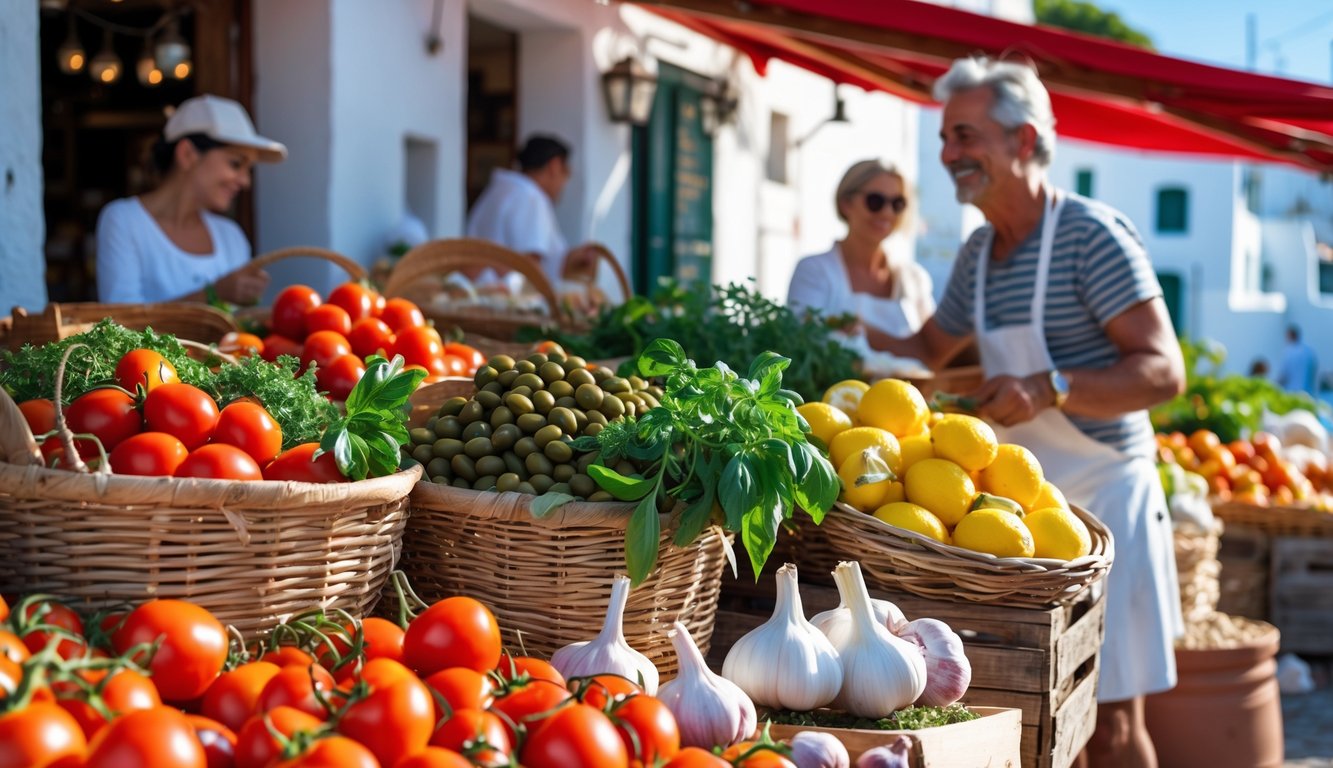
Spices and Aromatics: The Mediterranean Palette
Weird thing: even the tiniest grocers in southern France keep shelves of industrial and random home-packed herbs in plastic baggies with scribbled French labels—no English, ever. If you want flavor, you need the right combo: dried, fresh, and sometimes (why does nobody admit this?) the slightly wilted stuff that’s been in the fridge too long. Locals won’t tolerate a boring spice rack. It’s not about showing off, it’s about mixing the classics so you never get bored—citrus hiding in everything, garlic at breakfast, cheap saffron only for rice, and endless fights over the “real” cumin.
Spices Every Local Kitchen Has
Why does my neighbor insist you need a dented jar of cumin, a few cinnamon sticks, and some sketchy saffron threads (half of which are probably fake) to be truly Mediterranean? Paprika shows up everywhere, always mild, never smoky enough for me. I swear, someone’s tracking paprika imports from Murcia at this point.
Oregano? The good stuff comes from guys in battered vans outside the market—sign just says “Άγρια Ρίγανη.” Google Translate? Useless. Sometimes mint sneaks into meatballs or gets tossed onto yogurt, and basil is apparently as controversial as pineapple on pizza. Turmeric and ginger only appear when someone’s got “digestive issues,” and then everyone suddenly remembers grandma’s “ancient remedies,” even though science backs some of it. I’ll never get why parsley is both garnish and ingredient, but locals will fight you over it.
Citrus Zest: Lemon and Beyond
So, “lemon” in the Mediterranean? Not always what you expect. Ask for it in some random Cretan village, and you might end up with a jar of preserved peels instead of a fresh fruit. I swear, every backyard has a lemon tree, but nobody picks them at peak ripeness. Locals let them wrinkle up, claim the flavor’s better—sounds nuts, but then you try preserved lemon chicken and, well, maybe they’re onto something.
I spent months making tzatziki that tasted like nothing, then finally caught a cook zesting grapefruit and some weird green citrus into the bowl. Suddenly, it made sense—everyone’s sneaking in whatever citrus they’ve got, not just lemon. In Morocco, preserved lemon confit apparently costs more than saffron in some rooftop markets. Palermo? I sat there slurping fish soup, confused by this addictive tang, until a chef shrugged and pointed at a shred of citrus peel floating in the bowl. “Too much acid? Not possible. Not enough salt? Always possible.” Okay, sure.
Nobody’s squeezing juice from a plastic bottle, by the way. The only advice I ever got that stuck: zest first, squeeze after, and if you skip the pith, expect to be mocked—tradition’s tradition, and that’s the end of it.
Mastering Garlic, Onion, and Aromatics
Roasting garlic “like the locals” seemed easy until I smoked out my whole apartment and got stuck with “la vampira” as a nickname. Apparently, you can’t get Mediterranean flavor without using garlic and onions in what most people would call criminal quantities. Some cooks treat onions like vegetables, not just seasonings. I always start with onions, then add garlic, unless I’m making aioli—then it’s raw or don’t bother.
Chopping onions? Don’t even try to make them even unless you want your Spanish mother-in-law to roll her eyes. Leeks, wild ramps, parsley—somebody’s always tossing in something extra when the dish feels “off.” If your stew doesn’t have at least three types of alliums, you’ll get silent judgment. And if you call chives “green onions,” hope you like being corrected. Want to see what I mean? Here’s an herb and spice guide that only scratches the surface.
Mediterranean Cooking Techniques Explained
Forget sunsets and Instagram shots—someone’s burning eggplant again, and the smell’s not leaving your kitchen for a week. What actually sticks in my head: grilled sardines, crispy skin, that weird charred texture, and actual olive oil (not the stuff with the fake Italian flag on the label) soaking in. Oh, and that time I mixed up preserved lemon and bell pepper. Still not over it.
Grilling: Char and Flavor
I flinch every time lamb skewers go from perfect to inedible in sixty seconds flat. Locals? They don’t care about grill marks. It’s all about brutal heat—especially for fish and veg. In old port towns, they toss mullet straight from the boat onto the grill. Flames aren’t just for show; they lock in flavor and somehow keep everything juicy inside.
My cousin in Crete (pretty sure he’s a pyromaniac) swears by different woods: grapevines, olive pits, almond shells. Once I grilled zucchini over almond shells—tasted faintly nutty, and now I’m ruined for regular charcoal. Here’s a real tip: brush stuff with oil and lemon before grilling. It brightens flavor and stops things from sticking. Some say it keeps fat lower, but honestly, it’s more about swapping out bad fats for the good stuff. Grill lines? Not the point.
Roasting for Intensified Taste
Convection oven? Nobody cares. Most grandmas just crank up the heat and hope. You layer dense veg at the bottom, quick-cook stuff on top, and then frantically flip with tongs, burning your fingers every time. Roasting transforms eggplant, tomatoes, peppers—suddenly, they’re sweet, or at least that’s what everyone claims. But ask three people in Palermo and they’ll say it’s about the blackened bits—bitter edges make the sweet parts taste sweeter. Moisture’s a thing, too. Crowd the pan and you’ll end up with a sad, soggy mess. I roast chickpeas on their own tray so they get crispy and don’t ruin the fish. True story: the best roasting pans are old, warped, and impossible to clean. Nothing sticks, and nobody knows why.
Classic Sauces and Marinades
Nobody told me garlic would stain my fingers for days. Pounding parsley and garlic by hand, then drowning it in oil—that’s chimichurri, apparently, in southern Spain. Every region has their own version, and half the time the leftovers in the mortar become tomorrow’s “sauce.” Use the wrong vinegar (seriously, don’t trust “balsamic glaze”) and you’ll regret it.
Mediterranean sauces are all about acid: lemon, red wine vinegar, pomegranate molasses. I never measure. Real cooks just add whatever feels right. Anchovies mashed into oil (not for everyone, honestly) bring depth, and smoked paprika changes everything for chicken or potatoes. Seasonings and sauces are so regional that what’s “authentic” at one table is ignored next door. No rules, just enough acidity to keep things interesting.



